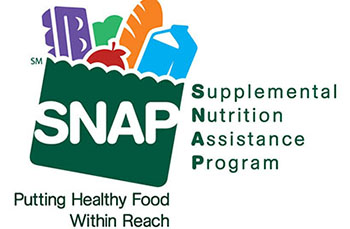By: Leslie G. Sarasin, President and CEO, Food Marketing Institute

I began my career in international trade and international law for a seafood importing company, which was the catalyst for a long career in the food industry. Much like an attorney engaged in private practice, I try to keep my finger on the pulse of cases that might change the interpretation of existing laws.
Cases that reach the U.S. Supreme Court often alter how particular laws are interpreted. Such cases, however, are exceedingly rare. The Court receives between 7,000-8,000 petitions for review each term, and only agrees to review about 80.
To date, the Court has decided 19 cases involving the Freedom of Information Act (FOIA), cases involving a wide array of FOIA issues and critical procedural concerns. Not one of those cases, however, has involved the interpretation of FOIA’s Exemption 4, which protects “trade secrets and commercial or financial information obtained from a person [that is] privileged or confidential.”
That changed recently. On April 22, the Court heard oral arguments in a case that has far-reaching implications for businesses’ confidential commercial information. The issue before the Court in Food Marketing Institute vs. Argus Leader Media is whether FOIA’s Exemption 4 protects from mandatory disclosure store-level redemption data from the Supplemental Nutrition Assistance Program, or SNAP. The outcome of FMI’s Supreme Court case has the chance to change history.
Here are some questions I’ve pondered as to why this case will be critical to any business – not just food retail:
What makes FMI v. Argus Leader unique?
FMI’s case involves the interpretation of FOIA’s Exemption 4, which protects from mandatory disclosure all “confidential” private-sector “commercial or financial information” that comes into the government’s possession. Although the case specifically involves a request that the U.S. Department of Agriculture disclose annual SNAP individual sales figures of each and every SNAP-eligible retail location in the country, the case has broader implications for a wide range of industries that provide confidential commercial data and information to the government.
We support FOIA and believe it is critical legislation that should be interpreted as written. It’s noteworthy that FOIA was not intended to make businesses anti-competitive or to impact the competitive landscape through the release of confidential data.
What is the National Parks test under FOIA?
Although the Supreme Court has never interpreted FOIA’s Exemption 4, many federal courts follow an atextual 1974 interpretation of the exemption from the D.C. Circuit. This has become known as the National Parks test.
The National Parks test says that information is “confidential” under Exemption 4 if its disclosure is likely either “(1) to impair the government’s ability to obtain necessary information in the future; or (2) to cause substantial harm to the competitive position of the person from whom the information was obtained.”
We seek the Court to reject the National Parks test and instead define “confidential” for the purposes of FOIA Exemption 4 based on the term’s plain meaning.
Will this change FOIA?
So, what does this all mean? Depending on the Court’s opinion, this case might reverse decades of decisions applying an atextual test and restore the plain-meaning of FOIA’s Exemption 4. If the Court narrows the test for what information the exemption protects, however, many industries may find that their confidential commercial data held by the government may become subject to disclosure.
Are there larger questions at stake?
In some ways, this case may influence the larger societal debate regarding what is considered personal, private information that is safeguarded as compared to the data the public is entitled to know, gather and use. As we move in the realities of an Internet-driven world, these questions will become increasingly important. This Supreme Court decision may also provide some insight into the Court’s thinking that may be applicable to other laws that protect the rights of individuals and companies from harmful, unwanted disclosure of their confidential information.
The Supreme Court is expected to reach a decision by June 2019.
For more information regarding the case, visit www.FMI.org/SCOTUS.


 Industry Topics address your specific area of expertise with resources, reports, events and more.
Industry Topics address your specific area of expertise with resources, reports, events and more.
 Our Research covers consumer behavior and retail operation benchmarks so you can make informed business decisions.
Our Research covers consumer behavior and retail operation benchmarks so you can make informed business decisions.
 Events and Education including online and in-person help you advance your food retail career.
Events and Education including online and in-person help you advance your food retail career.
 Food Safety training, resources and guidance that help you create a company food safety culture.
Food Safety training, resources and guidance that help you create a company food safety culture.
 Government Affairs work — federal and state — on the latest food industry policy, regulatory and legislative issues.
Government Affairs work — federal and state — on the latest food industry policy, regulatory and legislative issues.
 Get Involved. From industry awards to newsletters and committees, these resources help you take advantage of your membership.
Get Involved. From industry awards to newsletters and committees, these resources help you take advantage of your membership.
 Best practices, guidance documents, infographics, signage and more for the food industry on the COVID-19 pandemic.
Best practices, guidance documents, infographics, signage and more for the food industry on the COVID-19 pandemic.
